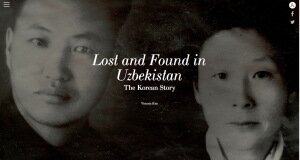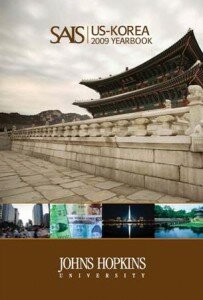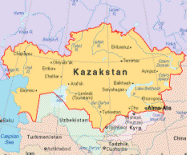After the showing of Lost and Found in Uzbekistan: The Korean Story at SAIS, Victoria Kim’s multi-media presentation has been selected to be published in The Diplomat in a three-part feature. Here are the links to Part I, Part II and Part III.

After the showing of Lost and Found in Uzbekistan: The Korean Story at SAIS, Victoria Kim’s multi-media presentation has been selected to be published in The Diplomat in a three-part feature. Here are the links to Part I, Part II and Part III.

Tuesday, May 24, 2016
6:00 PM – 9:00 PM
Reception beginning at 6:00 PM
Johns Hopkins SAIS, Rome Auditorium
1619 Massachusetts Ave, NW
Washington, DC 20036
Featuring: Victoria Kim, Beijing-based writer and multimedia producer
Moderated by: Jenny Town, Assistant Director, US-Korea Institute at SAIS
Tuesday, May 24, 2016 – Lost and Found in Uzbekistan: The Korean Story
 The U.S.-Korea Institute at SAIS annouces the release of the fourth edition of the SAIS U.S. -Korea Yearbook.
The U.S.-Korea Institute at SAIS annouces the release of the fourth edition of the SAIS U.S. -Korea Yearbook.
Each fall semester at SAIS, the Korea Studies Program offers the course, “The Two Koreas: Contemporary Research and Record,” where students prepare an in-depth report on an issue of importance to Korean affairs in that year. As part of their research, students make a one-week research trip to Seoul to test their ideas with experts and officials. The SAIS U.S.-Korea Yearbook is a compilation of these student papers.
Student authors include: Tze Chin “Alvin” Wong, Paul Elliott, Sogaku Miyamoto, Ian Howard, Kee Hoon Chung, Jason Park, Momoko Sato, Neil K. Shenai, Nick Borst, Naoko Aoki, Zander Lanfried, and Sarah Yun.
Download the 2009 SAIS U.S.-Korea Yearbook.
 As 97 percent of South Korean energy comes from imports, Central Asia is a very important area for developing and securing foreign energy resources. Among the countries in Central Asia, Kazakhstan has shown the highest tangible economic development results. Moreover, Kazakhstan, compared to other Central Asian countries, has the richest natural resources, a superior economy size, and a relatively stable political situation that could increase the speed of political modernization. Kazakhstan is also leading the region in terms of market reforms. read more …
As 97 percent of South Korean energy comes from imports, Central Asia is a very important area for developing and securing foreign energy resources. Among the countries in Central Asia, Kazakhstan has shown the highest tangible economic development results. Moreover, Kazakhstan, compared to other Central Asian countries, has the richest natural resources, a superior economy size, and a relatively stable political situation that could increase the speed of political modernization. Kazakhstan is also leading the region in terms of market reforms. read more …
WPS 09-07: Economic Cooperation between South Korea and Kazakhstan, by Lee Jae-young (October 2009). As 97 percent of South Korean energy comes from imports, Central Asia is a very important area for developing and securing foreign energy resources. Among the countries in Central Asia, Kazakhstan has shown the highest tangible economic development results. Moreover, Kazakhstan, compared to other Central Asian countries, has the richest natural resources, a superior economy size, and a relatively stable political situation that could increase the speed of political modernization. Kazakhstan is also leading the region in terms of market reforms. In this paper, Dr. Lee examines the status of economic cooperation between South Korea and Kazakhstan and suggests basic policies to improve relations between the two countries.
WPS 09-02: Strategic Opportunities for South Korean Development of Energy Resources in Central Asia, by Yoon Sung-hak, Ph.D. (February 2009). In this paper, Dr. Yoon examines the status of trade relations and energy diplomacy between South Korea and Central Asia. His analysis provides an overview of the actual and potential energy resources and reserves in major Central Asian countries – Kazakhstan, Uzbekistan, Azerbaijan, and Turkmenistan – and identifies key opportunities for Korea to increase its soft power in Central Asia through cultural exchange and greater diplomatic and economic expansion.